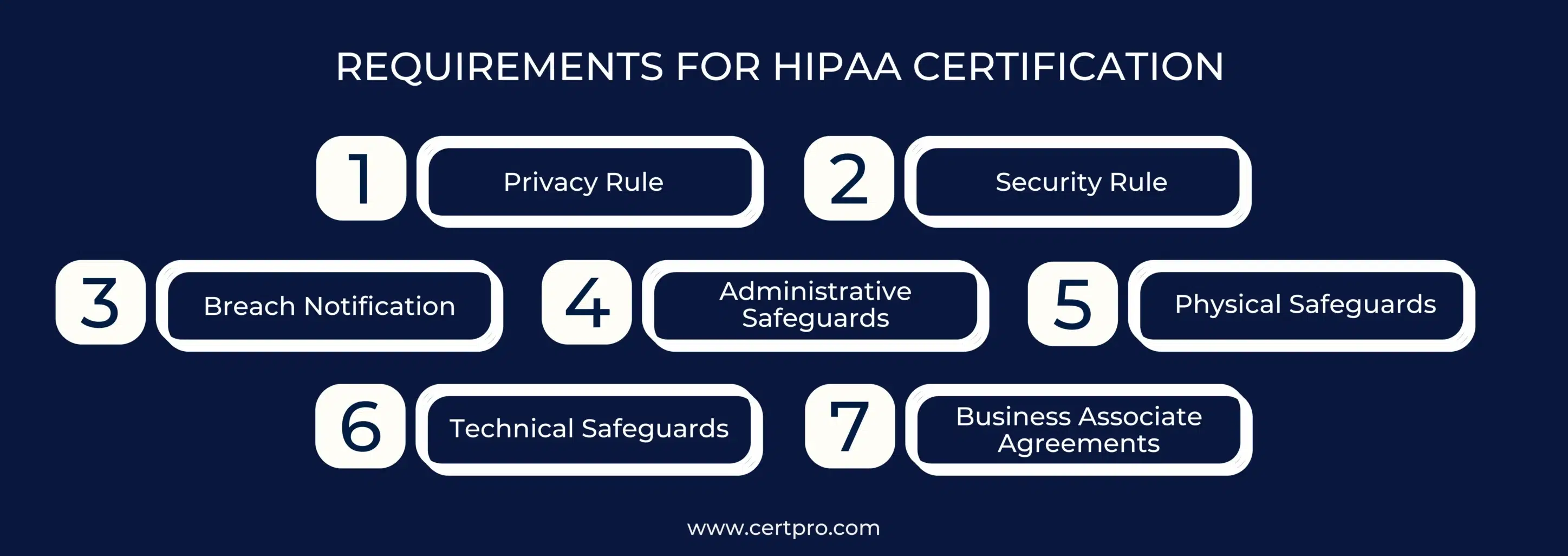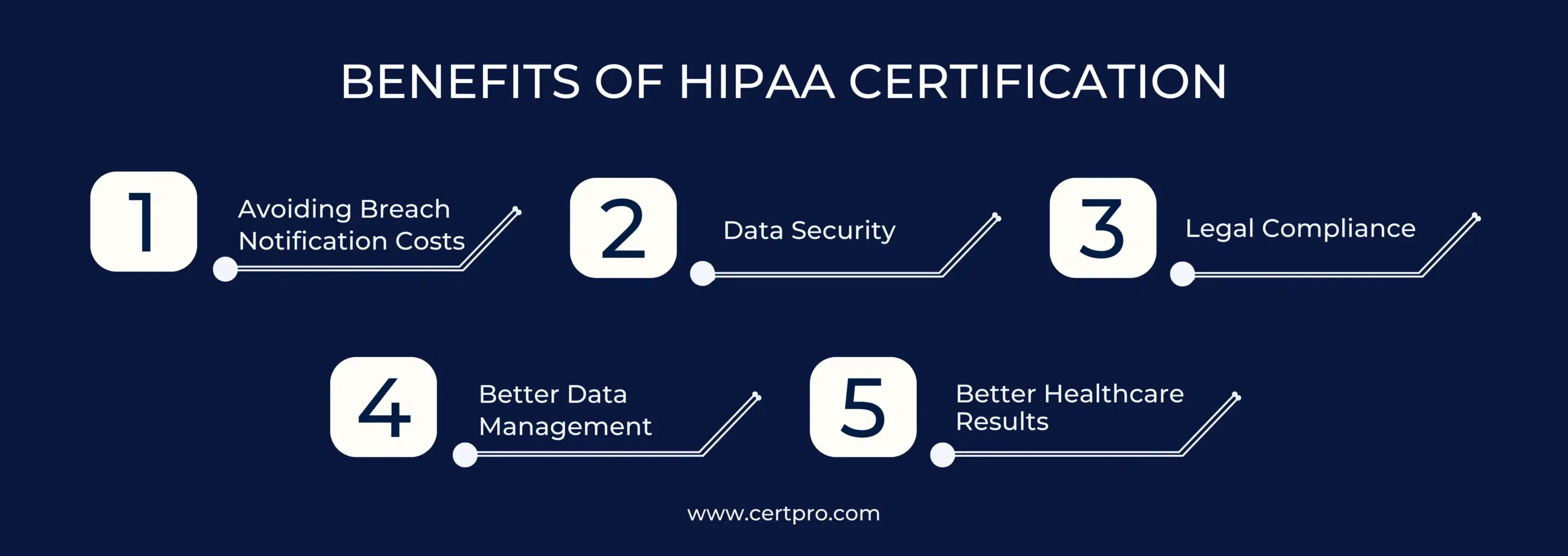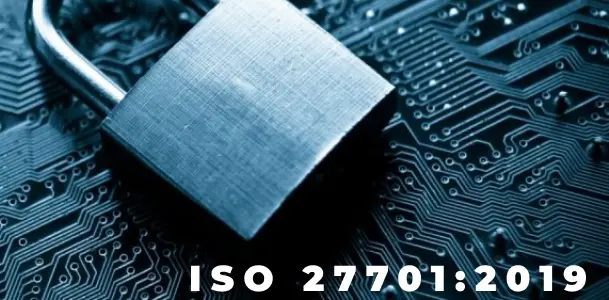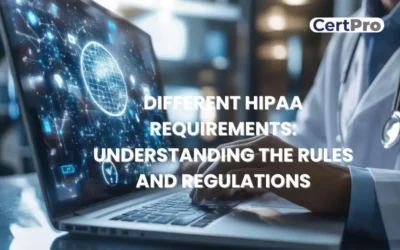INDIA
HIPAA CERTIFICATION IN INDIA
The healthcare industry in India is growing quickly and actively. It provides a wide range of services and cutting-edge technologies. The main problem is that India’s aging population requires sophisticated healthcare services. There are also many choices in India’s healthcare business. Medical tourism in India is prevalent in South Asian countries. People come from all over the world to get affordable surgeries and treatments. As the field grows, more and more healthcare facilities need to be certified under HIPAA. Therefore, HIPAA certification in India ensures strict data protection rules are followed, improving patient safety and privacy. Healthcare organizations in India can benefit from HIPAA certification. Some of these are better data protection and more patient trust. It also ensures that rules are followed and gives you an edge over your competitors, which is very important in the healthcare market.
HIPAA certification is becoming more critical with the rise of telemedicine and digital health options in India. It assures data safety and allows people to share information without hesitation. Gradually, India has become a better place to get medical care worldwide.
CERTIFICATION AND AUDITING SERVICES BY CERTPRO FOR HIPAA IN INDIA
CertPro provides certification and auditing services to ensure that healthcare facilities follow HIPAA rules. Thus, we put organizations through many audits to ensure they meet the strict Trust Services Criteria. This helps build trust among the stakeholders as a reliable service provider. In addition, our professional auditors look at security, availability, integrity, and privacy measures. We offer training that makes you more trustworthy and improves your image. It shows that you care about keeping info safe. CertPro is a reputed HIPAA consultants in India that you can count on. We help you understand the constantly changing rules about data security.
WHY CHOOSE CERTPRO FOR HIPAA CERTIFICATION AND AUDITING?
CertPro offers HIPAA compliance in India at affordable prices. We understand the importance of remembering HIPAA rules while handling certification costs. Therefore, our personalized approach ensures that you only pay for the tests and services your business needs. This cuts down on unnecessary costs. This streamlined the operation process and accelerated the certification. We use resources best and keep operations running as smoothly as possible. CertPro’s structure and methods are cost-effective and allow HIPAA compliance in India without lowering the quality of audits. CertPro is your reliable partner for low-cost HIPAA compliance services.
| Factors | CertPro Advantage |
| Time to Certification | 4x faster than traditional approaches |
| Price | Competitive rates with flexible options |
| Process | Streamlined and efficient methodology |
| Expertise | 10+ years of industry experience |
Related Links
SOC 2 in India
ISO 27701 in India
GDPR in India
ISO 27018 in India
HIPAA in India
CCPA in India
PIPEDA in India
ISO 17025 in India
ISO 13485 in India
CE Mark in India
GDP in India
GLP in India
ISO 9001 in India
ISO 14001 in India
ISO 45001 in India
ISO 22000 in India
HACCP in India
ISO 22301 in India
ISO 21001 in India
ISO 41001 in India
ISO 20000-1 in India
CERTPRO’S COST-EFFECTIVE APPROACH FOR HIPAA CERTIFICATION IN INDIA
CertPro provides economical HIPAA compliance services in India. We understand the importance of cost reduction and compliance. Our tailored approach allows you to pay for only what your business requires, saving you money. CertPro offers cost-effective solutions and realistic ways to maintain HIPAA compliance in India while maintaining quality.
| No. of employees | Timeline | Cost (approx.) |
| 1 – 25 | 4 weeks | 2500 USD |
| 25-100 | 6 weeks | 3500 USD |
| 100-250 | 6-8 weeks | 5000 USD |
| 250 plus | 8 weeks | Custom plans |
WHAT IS HIPAA?
The Health Insurance Portability and Accountability Act (HIPAA) was passed in 1996. Facilities that have obtained HIPAA certification guarantee that they adhere to the regulations for safeguarding health information. This means investigating how a company uses technology and complies with regulations. The aim is to prevent unwanted access, use, or disclosure of patient data.
Therefore, HIPAA certification validates several factors. An organization must have sufficient technical, administrative, and physical safeguards to secure PHI. Its staff must be trained on HIPAA regulations. Regular risk evaluations should be carried out. Lastly, businesses must have procedures for alerting the public to security flaws and detailing how to fix them. A business’s adherence to protecting patient health information is evidenced by its HIPAA accreditation.
The Privacy Rule: The Privacy Rule defines PHI as individually identifiable health information and establishes requirements for preserving it. PHI use and disclosure are restricted, and persons must consent for some purposes. People also have control over the health-related information they receive.
The Security Rule: The Security Rule explains how to protect electronic PHI (ePHI). It assures availability, confidentiality, and integrity. Organizations must use various security measures to prevent unwanted access to health data online.
HIPAA’s purposes include protecting health information and ensuring privacy. While allowing information sharing for optimal healthcare, it also safeguards private information. HIPAA standards govern the communication of health-related information online. While respecting anonymity, it will enable information to be used for medical and bill payment needs.
Finally, HIPAA gives consumers control over their data while providing laws to protect health information. Medical facilities use technology and safety processes to follow these laws.
WHY DO WE NEED HIPAA CERTIFICATION?
HIPAA certification in India does not ensure your client’s data security, but it is necessary. Thus, being certified can lower the likelihood of data breaches when you abide by the regulations. Patients will have fewer issues, and the Office for Civil Rights (OCR) will conduct fewer investigations. A HIPAA certification indicates that your company is making a great effort to adhere to HIPAA regulations. If something goes wrong, you take reasonable measures to protect patient data. If your company handles health data, having HIPAA certification further proves to them how seriously you take compliance. You thus create a strong reputation and raise public confidence in your business. Therefore, certification also makes it simpler to collaborate with other companies. Entering into contracts with business associates is facilitated by demonstrating your preparedness to responsibly handle protected health information (PHI).
HOW TO GET HIPAA CERTIFICATION IN INDIA?
One vital element must be recognized when evaluating how to apply for HIPAA certification in India. The Department of Health and Human Services (HHS) has not officially recognized these certifications. However, the HHS recognizes third-party HIPAA verification technologies. As a result, gaining HIPAA in India requires a few essential procedures.
First, establish a thorough compliance program. Then, hire a reliable third party. This third party will check and validate your program’s efficacy. As a result, you can guarantee that it meets HHS requirements. Furthermore, this procedure establishes trust and indicates your dedication. As a result, the company can fulfill compliance obligations and enhance its standing.
So, how long does it take to get HIPAA certified? The time could change based on the organization’s size, complexity, and level of compliance. Usually, it takes a few months to a year to make all the necessary changes and get a full third-party review. By taking these steps, you’ll be closer to getting certified under HIPAA in India. This will ensure better healthcare quality, operating integrity, and data security.
STEPS FOR OBTAINING HIPAA CERTIFICATION
This is a step-by-step tutorial to assist you in becoming certified for HIPAA compliance:
Step 1: Recognize HIPAA Requirements: Ensure that all members of your staff know the HIPAA requirements. Also, recognize your responsibility to safeguard PHI. Review the extra requirements and the Security and Privacy Rules.
Step 2: Evaluate Your Risk Under HIPAA: Conduct a comprehensive assessment procedure to determine the PHI management’s shortcomings. Then, a thorough risk analysis will be carried out to assess any possible weaknesses. Use the findings to identify areas that need strengthening and reinforce general data protection procedures.
Step 3: Construct HIPAA Policies and Practices: Create guidelines for managing PHI. These policies should then be implemented following HIPAA regulations. Additionally, customize them for particular tasks within your company.
Step 4: Implement Physical and Technical Safeguards: Implement the required physical protections. Additionally, secure data storage and access controls should be established. Moreover, encryption can be used to safeguard against unwanted access.
Step 5: Regular Monitoring: Maintain a close eye on compliance initiatives to ensure rules and regulations are followed. Moreover, rules and procedures should be updated with the latest best practices. Moreover, coordinate them with changing legal provisions to ensure strong adherence to the law and efficiently manage hazards.
Step 6: Maintain HIPAA Documentation: Keeping detailed records of compliance initiatives is essential for efficiently monitoring advancement. Moreover, carefully record risk assessments and training sessions to guarantee thorough coverage. Keep incident response plans updated regularly to consider new tactics and threats. You have steadfastly dedicated to data protection and compliance with this paperwork.
Step 7: Appoint a HIPAA Compliance Officer: Assign a dedicated compliance officer. This person will supervise regulation adherence and ensure that data security and privacy measures are followed effectively.
Every organization in India faces unique challenges based on its size and operations. Therefore, the company can show its commitment to HIPAA compliance in India by undertaking these steps. For more details on the technical aspects, feel free to contact us at CertPro.com, and we’ll be glad to provide the information you need.
REQUIREMENTS FOR HIPAA CERTIFICATION IN INDIA
Organizations must meet several requirements to get HIPAA certification in India.
Privacy Rule: The first step should be to enforce the proper usage of PHI. Additionally, each individual must obtain the agreement, and the necessary precautions must be implemented. Give them the option to view and amend their PHI as needed.
Security Rule: Provide solid administrative safeguards to monitor adherence. Strict physical and technical security measures should also be implemented to stop unauthorized use, access, or disclosure of ePHI.
Breach Notification: Adhere to specific protocols in a breach. Notify those impacted immediately and swiftly notify the Department of Health and Human Services.
Administrative Safeguards: Formalize your approach by putting policies and practices in writing. Then, privacy and security officers will be chosen to supervise implementation. Provide instruction on HIPAA regulations to guarantee comprehension and conformity. Conduct thorough risk management and analysis as part of your compliance efforts to reduce potential risks further.
Physical Safeguards: To maintain control over access, allow only authorized staff to enter PHI storage areas. Install security measures such as cameras to monitor access. Furthermore, ensure that media or devices holding PHI are disposed of appropriately to protect sensitive data.
Technical Safeguards: Use passwords and unique IDs as access controls to limit access—Encrypt data in transit and at rest for even more security. Apply security updates regularly to reduce vulnerabilities. Keep a close eye on network activities to quickly identify illegal access or breaches.
Business Associate Agreements: Establish agreements with business partners to guarantee that they adhere to HIPAA regulations strictly and regularly.
Note: This overview covers the current technological landscape comprehensively. For further details on HIPAA in India, visit CertPro.com and contact us for a detailed explanation.

HIPAA CERTIFICATION COST IN INDIA
The cost of becoming HIPAA certified can vary greatly depending on several variables, including the organization’s size, operational complexity, and the level of outside support needed. Risk assessments, policy development, employee training, security measure implementation, and technology updates are typical costs. Continuous expenses for audits and upholding compliance are also typical.
It’s critical to realize that neither the government nor any particular certifying body offers formal HIPAA certification. As such, the costs of attaining HIPAA compliance are contingent upon the resources allotted to comply with HIPAA requirements. Even though HIPAA compliance is expensive, following its rules is essential. As a result, expenses may differ based on the organization’s complexity and size.
BENEFITS OF HIPAA CERTIFICATION
HIPAA certification in India offers significant benefits that make healthcare better in many ways:
Avoiding Breach Notification Costs: Following HIPAA regulations assist healthcare organizations in preventing or managing breaches involving protected health information (PHI). This reduces the cost of breach notifications and expedites problem resolution.
Data Security: HIPAA protects patient data from unauthorized individuals, including hackers. This prevents data breaches and preserves the healthcare organization’s trusted reputation.
Legal Compliance: Indian healthcare groups comply with all legal requirements when they follow HIPAA regulations. This protects them from penalties and other issues that arise from disobeying the law.
Better Data Management: Healthcare organizations can more effectively arrange their data with checks and plans according to HIPAA requirements. This encompasses regular audits, risk analyses, and establishing policies and procedures to streamline efficient PHI management.
Better Healthcare Results: HIPAA privacy protections facilitate improved information sharing between clinicians, which results in better decision-making, better treatment planning, and healthier patients.
Acquiring HIPAA certification enhances the trustworthiness of Indian healthcare organizations by promoting data security, operational efficiency, and improved patient care.

SAFEGUARD PATIENT DATA AND ACHIEVE HIPAA COMPLIANCE IN INDIA WITH CERTPRO
CertPro helps Indian businesses follow HIPAA rules because it knows them. Our professionals will carefully examine how you handle data to find and fix any issues. Your company must remember that protecting data is more important than following the rules. To ensure that HIPAA rules are followed in India, we give you practical advice, make the necessary changes, and monitor your business. Therefore, we understand how hard it is for small businesses and offer cost-effective ways to improve compliance.
When businesses in India work with CertPro, they create trust among the stakeholders. Thus, HIPAA certification in India ensures that your company follows the right data handling practices, which prepares it to succeed in today’s data-driven world.
FAQ
IS HIPAA CERTIFICATION MANDATORY IN INDIA?
While HIPAA compliance is mandatory for covered entities and business associates in the United States, there is no specific legal requirement for HIPAA certification in India. Adhering to HIPAA regulations strongly recommends protecting patient privacy and maintaining industry best practices.
HOW LONG DOES IT TAKE TO ACHIEVE HIPAA CERTIFICATION IN INDIA?
The timeline for achieving HIPAA certification in India varies depending on factors such as the organization’s current state of compliance, size, complexity, and available resources. It typically involves conducting risk assessments, implementing policies and safeguards, staff training, and ongoing monitoring. The completion of the process may require several months.
WHAT HAPPENS IF AN ORGANIZATION FAILS TO COMPLY WITH HIPAA REGULATIONS IN INDIA?
Failure to comply with HIPAA regulations can lead to penalties, fines, legal consequences, damage to reputation, and loss of patient trust. Organizations must prioritize HIPAA compliance to mitigate these risks and protect patient health information.
CAN OUTSOURCING HIPAA COMPLIANCE BE BENEFICIAL FOR ORGANIZATIONS IN INDIA?
Yes, outsourcing HIPAA compliance to experienced and knowledgeable professionals can be valuable for organizations in India. Compliance experts can provide guidance, conduct assessments, and assist in implementing the necessary measures, saving time and resources for the organization while ensuring proper compliance with HIPAA regulations.
CAN HIPAA CERTIFICATION IN INDIA BE TRANSFERRED OR RECOGNIZED INTERNATIONALLY?
HIPAA certification in India is specific to compliance with Indian healthcare regulations. However, the principles and standards outlined by HIPAA are widely recognized globally. Compliance with HIPAA regulations can demonstrate an organization’s commitment to protecting patient information, which may be valuable when working with international partners or handling data from other countries.
DIFFERENT HIPAA REQUIREMENTS: UNDERSTANDING THE RULES AND REGULATIONS
With increasing cyberattack trends, organizations must take appropriate measures to secure their lifeblood. Similarly, patient health and financial information need protection in the healthcare sectors. Therefore, the Health Insurance Portability and Accountability...
HITECH ACT AND ITS IMPACT ON MODERN HEALTHCARE
In 2009, the Health Information Technology for Economic and Clinical Health or HITECH Act was signed to transform the American healthcare industry. The laws worked as a forward-thinking process of changing patient services. In this regard, the Patient Protection and...
BEST PRACTICES FOR DATA PROTECTION IN THE HEALTHCARE INDUSTRIES
In the healthcare sector, safeguarding sensitive information about patients is extremely important. Patient data includes personal details, medical histories, and treatment plans. Therefore, it must be protected and should be confidential. Thus, breaches not only...












